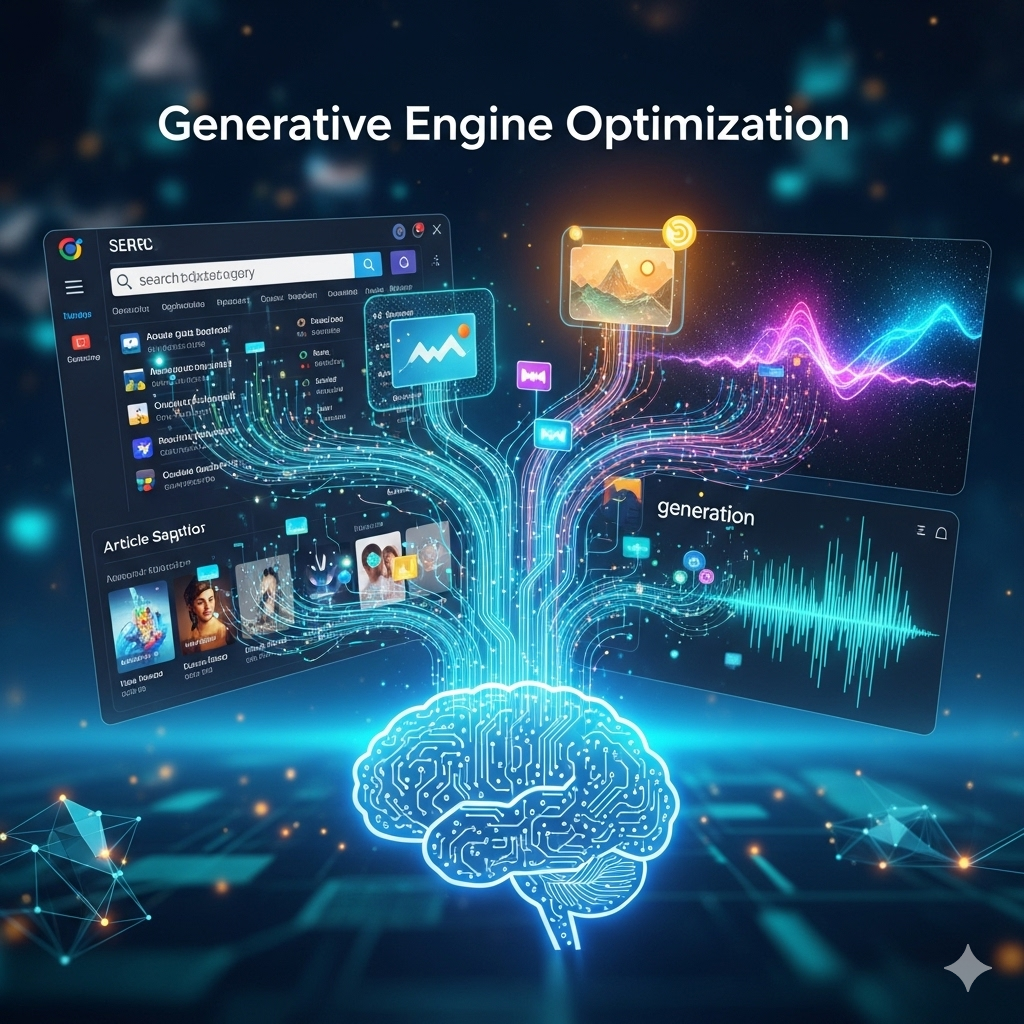Introduction to Generative Engine Optimisation
The SEO landscape is changing rapidly with the inception of new-age generative engine optimisation(GEO). The traditional SEO is now replaced by the GEO experience, which increases the online visibility of startups, businesses, brands, and others. GEO entirely focuses on content alignment with generative AI through E-E-A-T and schema markups.
Latest research shows that AI overviews appeared for nearly 13.14% in March 2025. That means, brand or startup owners must optimise their content and web pages to get noticed by AI and search engines. In today’s blog, you will understand how to optimise your web content, tips for generative engine optimisation, benefits, and other relevant information. Keep reading!
Generative Engine Optimisation Definition
Generative engine optimisation is a practice of making your website, data, and content discoverable and citable by AI. The generative engines include ChatGPT browsing, Perplexity, Gemini, etc. Instead of only relevant keywords, now you can optimise and reshape your web pages so well that generative engines can extract required data from your site and recommend it under the SERP AI overview box.
In simple terms, generative engine optimisation includes on-page clarity, original data, proper citations, author bios, etc, with structured signals (schemas) and content formats. Using these metrics helps AI to read and trust your website. The simple equation here is:
E-E-A-T + structure schemas + trustworthy content = generative AI feature
How Does Generative Engine Optimisation (GEO) Work?
Generative engines pull out data from multiple sites to compile answers based on credibility, freshness, clarity, and consistency. Web pages with more readable structures (headings, bullets, tables, FAQs, etc) are more likely to be used in the AI overview or GEO overview box.
At a very basic level, GEO helps to make your content AI-friendly. It indicates:
- Writing short and authoritative answers for common user queries.
- Using clear structures like headings with relevant keywords, lists, tables, bullet points, FAQ sections, etc. These help crawlers and AI models to understand your web content seamlessly.
- Including reliable citations, author bios, references, etc, to increase trustworthiness.
- Controlling metadata, canonical tags, snippet-friendly excerpts, etc.
GEO vs SEO: Main Differences
GEO is not entirely different from SEO, but an updated version with AI readability. Here are the major factors that differ between them.
| Factors | Generative engine optimisation | Search engine optimisation |
| Objectives | Focuses on AI-generated overviews on ChatGPT, Perplexity, Gemini, Claude, etc. | Focuses on web page ranking on traditional search engine pages. |
| Optimisation focus | Focuses on facts, entity, structure, evidence, etc. | Focuses on keywords, backlinks, technical health, etc. |
| Style of content | Prefers concise and answerable sections, including FAQs, checklists, tables, etc. | Prefers comprehensive guides. |
| Success metrics | Measures how often the content is featured in AI snippets. | Measures the traffic and conversion. |
| User interactions | Users receive several cited sources, which reduces the click rate. | Users need to click on the individual link given on SERPs. |
Benefits of Generative Engine Optimisation
- GEO helps to earn citations in AI overviews.
- It captures “zero-click” attention from users or target audiences.
- It brings faster decision-making through reliable citations.
- GEO is also useful in voice search and multimodal response creation.
- Generative engine optimisation increases how AI assists in search engine optimisation.
7 Tips to Optimise for GEO
- Use an appropriate SEO plugin to boost search engine optimisation.
- The keyword is the main factor for any search intent of users. Find relevant keywords with the help of tools like Semrush, Ahrefs, Google Keyword Planner, etc.
- A well-structured content is the key to making your web page or content AI-friendly. Break your text content into small and concise paragraphs. Use tables, lists, Q&A formats, proper headings and subheadings, etc.
- Always keep the technical health of your site at its optimum stage. You must consider page speed, crawlability, etc.
- Focus on multimedia content, like images, videos, infographics, etc, along with text. AI understands multimedia files and refers them to your target readers.
- Authority is one of the most important pillars in AI optimisation or generative engine optimisation. Use citations, add relevant sources to your content, and incorporate data, stats, or quotes of experts.
- Aim at purchase-intent questions like where to buy, where to find, etc. The generative engine prefers to answer those questions with brand recommendations.
Wrap Up
Generative engine optimisation is not replacing the complete search engine optimisation; rather, it is expanding the AI relevance side as well. GEO is the extra layer of search experience, which helps your content to be a trustworthy source in the AI overview. Use an appropriate answer-first approach with relevant structure in your web content.
Need help with GEO content? Creators’ Space, a generative engine optimisation agency, helps brands and startups to draft content suitable for AI readability. Contact us today for GEO-relevant web design, content creation, and your brand’s social media management to keep you ahead in the AI competitive era.
FAQs
- Is GEO really helpful?
Yes, GEO is an important part of the online presence of businesses or brands. Your business website may get cited directly in the AI overview on SERP.
- Does GEO affect the user interaction on Google search pages?
Yes, GEO has a great impact on user interaction. Users can directly get the source of their queries, which reduces the number of clicks.
- Is E-E-A-T relevant to the GEO?
Yes, AI always prefers and showcases trustworthy information and content. So, you must share reliable and personal experiences along with proper author data and citation.
- Which are important factors to measure the GEO-relevant keyword performance?
Several metrics are available to measure the keyword performance, which are suitable for GEO. These are the average CTR, clicks, and positions of the websites, among other metrics.
- Which are the most popular generative engines these days?
In this AI-driven era, several generative engines are available to users. Some of those are Claude, Gemini, ChatGPT, Perplexity, etc.



